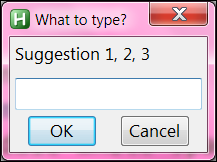As I transition to faculty, I have increasingly gotten requests from people who want to do PhD's with me or want postdocs in my lab.
Often these emails are extremely generic and don't suggest they know anything about my research. The descriptions of themselves suggests they've mostly studied completely unrelated topics to my research field (even as broadly defined as the topic at even the department level).
I probably get at least one of these emails per day now (during graduate student application season), so it would be too cumbersome to send out a personalised response email to each one. And I imagine the volume will only increase if/when I become more established.
Most faculty surely just ignore/delete these types of emails, but I feel bad that these students appear to have gotten terrible (or no) advice about how to contact a prospective advisor, and I want to be helpful. How should I reply?

